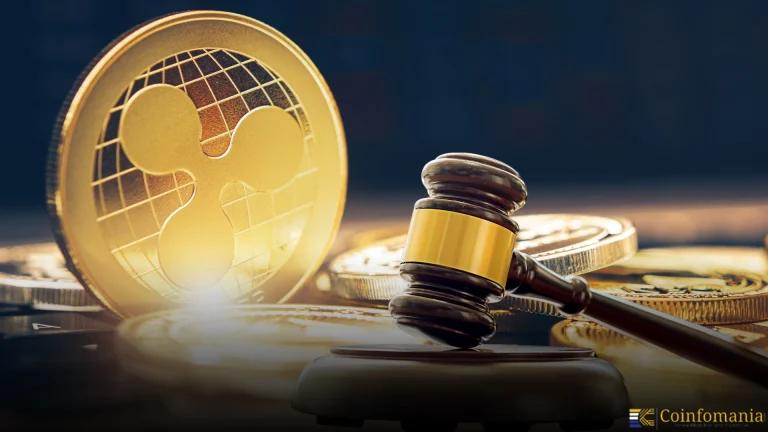Cryptocurrency Regulation in United States
The renewed leadership of President Donald Trump, who has promised to make the US the “crypto capital of the planet,” seems to be leading the United States into a more crypto-friendly period that begins in 2025 … or earlier. This is quite a reversal from how things were during the earlier years, where the federal […]

The renewed leadership of President Donald Trump, who has promised to make the US the “crypto capital of the planet,” seems to be leading the United States into a more crypto-friendly period that begins in 2025 … or earlier. This is quite a reversal from how things were during the earlier years, where the federal response towards crypto was lukewarm and fragmented.
The US hasn’t yet launched a central bank digital currency (CBDC), but cryptocurrency is still legal to own, buy, sell, and invest in. It is a complex, but increasingly structured, environment which is formed by a mix of federal and state level regulations. This patchwork is now being woven into a more coherent regulatory fabric, tending to support innovation, supporting investor protection, and excluding illicit activity.
Understanding this regulatory landscape is hence paramount to crypto investors, startups and the established business in its tax, compliance obligations and need for operational licensing.
Historical Context
Crypto regulation in the U.S. has been built deliberately slowly. Bitcoin arose in 2009 when the regulatory landscape was still grey, especially considering early platforms such as Mt. Gox established an office with very little oversight.
However, things began to change in 2013, when the Financial Crimes Enforcement Network (FinCEN) declared crypto exchanges as Money Services Businesses (MSBs) and required that they comply with the Anti Money Laundering (AML) laws.
Better scrutiny followed the 2017 ICO boom. More specifically, the Securities and Exchange Commission (SEC) started going after token issuers, claiming that any of the various initial coin offerings (ICOs) predated unregistered securities offerings.
The year 2022 was also marked by a landmark executive order ordered by President Biden for a complete digital asset framework. By 2025, the crypto adoption has further changed under President Trump who has not only supported crypto adoption but encouraged it. For example, his administration, in 2025, set up a Strategic Bitcoin Reserve using the proceeds of seized digital assets as a first in building up the U.S. financial position.
Regulatory Framework
The U.S. crypto regulatory system depends on several federal agencies, each of whom is charged with a different type of mandate. This model is a multi agency model and can be quite hard to understand but all bodies have a role to regulate digital assets.
Crypto assets determined as securities are dealt with by the Securities and Exchange Commission (SEC). Any project that intends to launch a token offering (ICO/STO) must either register with the SEC or comply with one of the many exempting criteria that exist.
Commodities based crypto products are the one which includes Bitcoin futures and derivatives are overseen by Commodity Futures Trading Commission (CFTC). In the futures markets, crypto fund managers have to be registered under the National Futures Association (NFA).
The Internal Revenue Service (IRS) treats cryptocurrencies as property for tax purposes. This implies that taxes on the sale or swap of such a token will be capital gains tax and any staking rewards are reported as taxable income.
AML and Know Your Customer (KYC) rules are enforced by the Financial Crimes Enforcement Network (FinCEN). Registering as MSBs, verifying user identities and reporting suspicious activity are required of exchanges.
In addition, crypto businesses often require state money transmitted (also known as money services) licensure, which can differ widely from state to state. For instance, New York applies a strict Bit License regime, but Wyoming is more permissive towards cryptocurrencies.
A number of states, including Arizona and Utah, have put in place regulatory sandboxes under which crypto companies can operate within relaxed rules on a temporary basis in order to promote innovation.
United States Crypto Policies
Ownership, trading and investment in cryptocurrencies in the U.S. is legal. Although Bitcoin is not recognized as legal tender, you cannot use it to pay the taxes or buy groceries nearly everywhere. However, like some private retailers, there are some private vendors that take crypto payments voluntarily.
The U.S. is the current host of over a third of global Bitcoin mining power, and mining is legal and widespread. However, the states differ in their treatment of mining. For instance, Washington monitors crypto based on mining time values, while the rest of the states regulate crypto in the context of environmental policies to control energy intensive processes.
In Feb. 2025, the U.S. has yet to issue this fiat; however, the Federal Reserve continues researching a digital dollar. The U.S. compared to countries like China is moving slowly because of privacy and financial freedom issues.
In 2025, the establishment of the Strategic Bitcoin Reserve by the executive order of President Trump was a notable and unexpected policy development. Seized digital assets backing a Federal Reserve account in order to satisfy the debt is this initiative’s way of sending a message to the global digital asset ecosystems indicating they are integrating deeper.
USA’s Approach to Crypto Innovation
While the federal government has been careful, State governments have been the ones leading the crypto innovation pack.
And Wyoming has become a leader, encouraging the best laws for crypto-chartered banks as well as DAOs (decentralized autonomous organizations).
Startups have been allowed to test out crypto products in Arizona and Utah without needing to obtain a full license up front with regulatory sandboxes.
Blockchain is being looked into by the Department of Homeland Security (DHS) for supply chain verification, and secure IDs.
It is now possible to bank crypto assets with major banks like JPMorgan and Goldman Sachs.
Although federal agencies are mainly concerned about compliance, several institutions are supporting blockchain development and that paves the way for the U.S. to become a global leader in digital finance, if the regulatory oversight continues to improve.
Notable Challenges and Issues
Though there are signs of progress, these developments are marred by numerous challenges to U.S. crypto regulations:
Federally, inconsistent State licensing adds compliance burdens for companies operating in various States. For instance, Wyoming business, which operates legally in the said state, may still require a BitLicense to operate in New York.
Decentralized finance has become one of the regulatory gray areas. Enforcing AML laws becomes more difficult when one of the parties in a transaction is an anonymous or global user and is conducted using non-custodial wallets and smart contracts.
Split Public Perception: Although the younger generations are more open to cryptocurrencies, mainstream media tends to focus on volatility, scams, and the battles of regulations. It feeds into a certain public attitude that is cautious.
No Central Oversight Authority: As crypto is regulated by multiple agencies that cover each of its aspects, a crypto business has to adhere to different compliance requirements and often it is scattered.
Future Outlook and Regulatory Trends of the Key Industry Players
The regulatory maturity has continued to grow. The change from fear driven supervision to a more structured engagement is Trump’s 2025 Executive Order to establish the Strategic Bitcoin Reserve and form the SEC Crypto Task Force.
At the same time, there is bipartisan support in Congress over the proposed Clarity for Payment Stablecoins Act. It would create a clear legal framework for U.S. stablecoin issuers and allow U.S. backed stablecoins to continue to compete globally if passed.
The path ahead for the U.S. is likely to be:
Define more clear, secure, commodity, utility tokens.
Increase in the federal laws and taxation policies of the stablecoin regulation.
Continuously research CBDC without an immediate issuance.
In addition, you must retain influence over global crypto markets including dollar-pegged stablecoins such as USDT and USDC.
Conclusion
The United States is getting into crypto with guardrails in 2025. Now, regulations are clearer, innovation is being supported at the state level, and federal leadership is leaning into strategic adoption not resistance.
Crypto businesses, investors, and users looking to operate or invest in the U.S. can do so, with proper attention paid to compliance, tax obligations, and regional laws. As crypto grows into the global digital economy, the U.S. is both the regulator and participant to crypto’s next chapter.
Frequently asked questions (FAQs)
1. Is crypto legal in the U.S. in 2025?
Yes. According to Visa, crypto is legal across the United States to own, invest in, and to trade.
2. Can you pay for products or pay taxes with crypto?
Not officially. While crypto is not legal tender, some merchants will take it at will.
3. Presently, does the U.S. have a central bank digital currency (CBDC)?
No. The idea about an official CBDC, though, is being researched by the Federal Reserve, but there isn’t an official CBDC yet.
4. Strategic Bitcoin Reserve (SBR) is a Japanese based project.
It is a federal crypto reserve consisting of seized assets established by executive order in 2025.
5. Do I have to pay tax on my crypto gains?
Yes. The IRS treats crypto as property. Profits are taxed at capital gains, staking rewards are taxed as income.
6. Which licenses do crypto companies need to be in the U.S.?
Almost all must register with FinCEN and acquire state level money transmitter licenses.
7. Are U.S. stablecoins regulated?
Partially. In fact, new laws such as the Clarity for Payment Stablecoins Act intend to fully regulate them.
8. Is crypto mining legal in the USA?
It depends, but environmental laws in each state differ.
9. Is DeFi regulated in the U.S.
Not clearly. Still under review is the sector and AML enforcement is difficult.
10. Which states would be the most crypto friendly?
As states in Wyoming, Arizona, and Texas are granting innovation-friendly laws and infrastructure.
Follow us on Google News
Get the latest crypto insights and updates.
Related Posts

Ripple Highlights Custody as Key to $18.9T Tokenized Assets by 2033
Shweta Chakrawarty
Author

Hong Kong SFC Issues New Custody Rules for Crypto Platforms
Shweta Chakrawarty
Author

South Korea and Vietnam eye $150B trade despite Trump tariff
Shweta Chakrawarty
Author